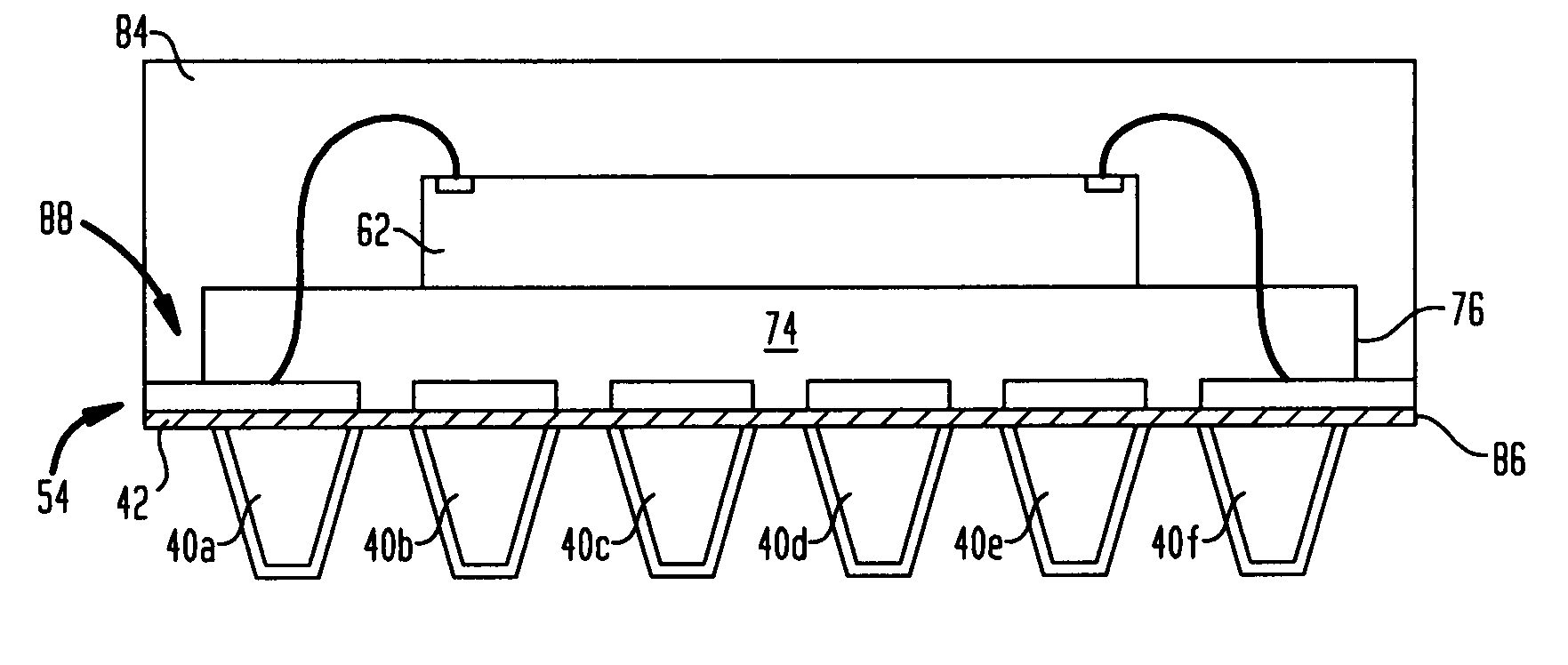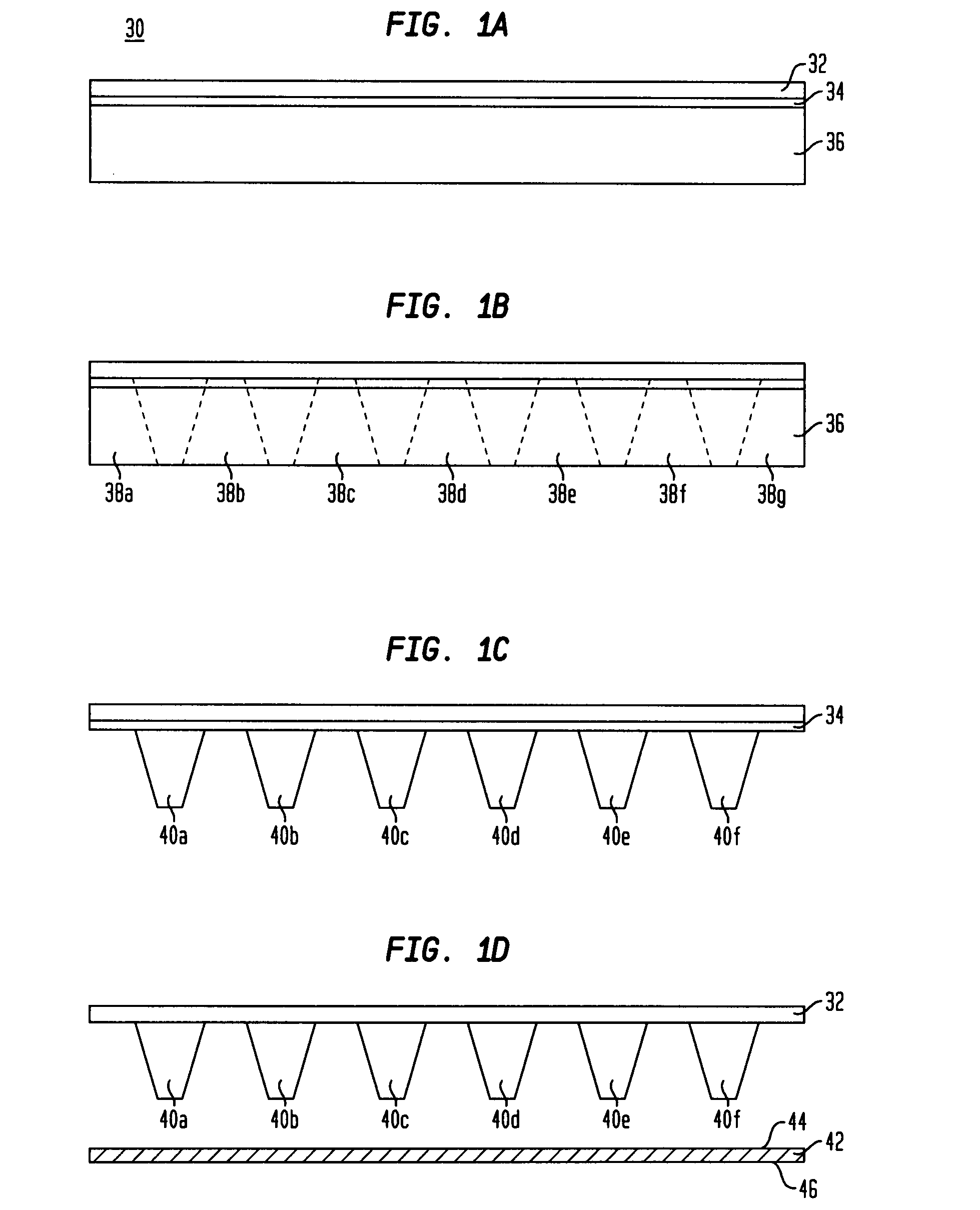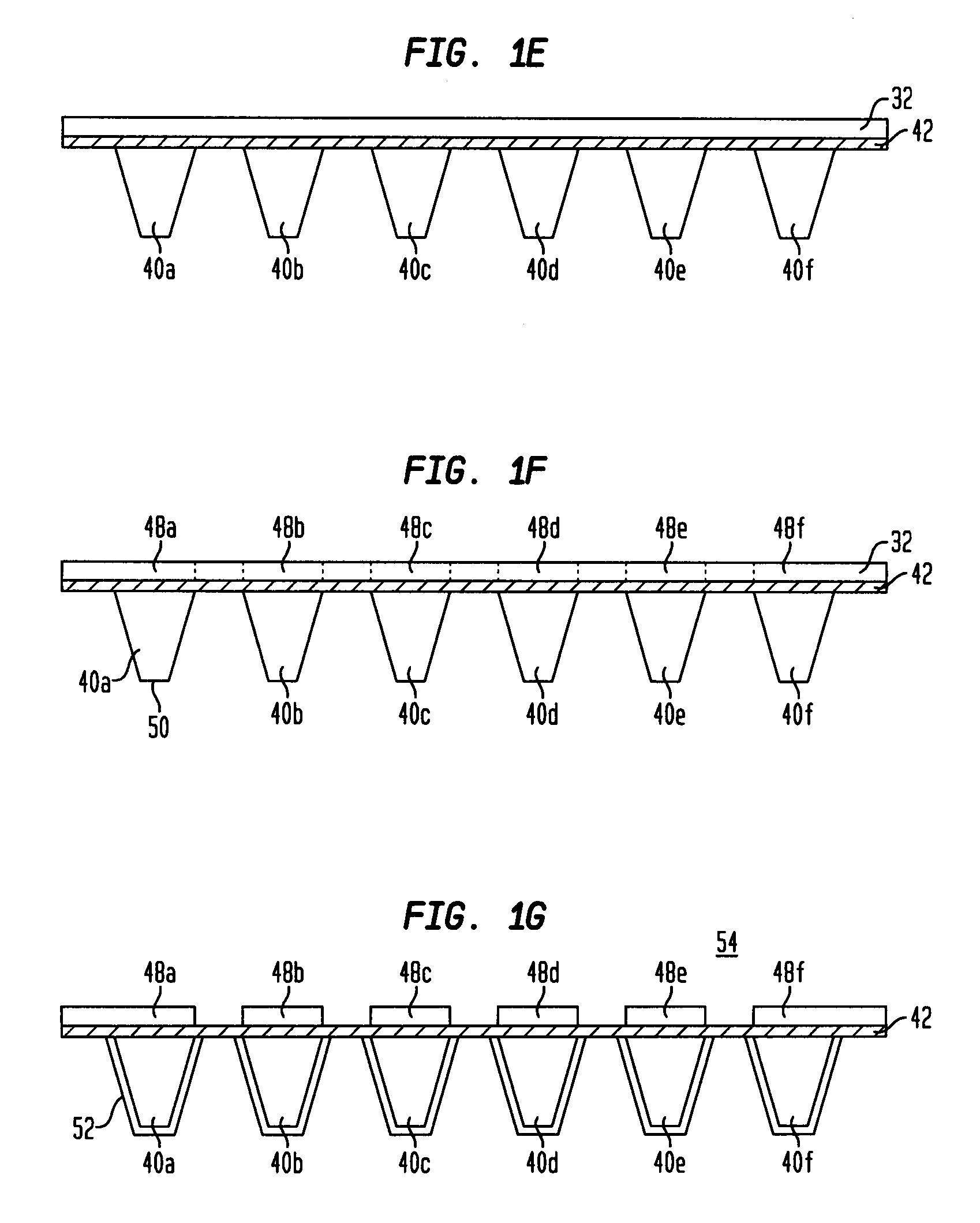Microelectronic packages and methods therefor
a technology of microelectronic packages and microelectronic components, applied in the direction of semiconductor devices, semiconductor/solid-state device details, electrical apparatus, etc., can solve the problems of imposing stress on assemblies including packages, terminal movement, stress on soldering,
- Summary
- Abstract
- Description
- Claims
- Application Information
AI Technical Summary
Benefits of technology
Problems solved by technology
Method used
Image
Examples
Embodiment Construction
[0091] Referring to FIG. 1A, in certain preferred embodiments of the present invention, a microelectronic subassembly may be fabricated by a process such as that disclosed in certain preferred embodiments of co-pending, commonly assigned U.S. Provisional Application No. 60 / 508,970, the disclosure of which is incorporated by reference herein. As disclosed in certain preferred embodiments of the '970 application, a metallic plate 30 includes a top layer 32 made of a conductive material, an intermediate etch stop layer 34 and a bottom layer 36 made of a conductive material. The top and bottom layers 32, 36 may include electrically conductive materials such as copper. The intermediate etch stop layer 34 may include materials such as nickel. Referring to FIGS. 1B and 1C, the bottom layer 36 of metallic plate 30 is stamped or etched to remove portions 38a-38g of bottom layer 36 so as to form conductive terminals or posts 40a-40f. Referring to FIG. 1C and 1D, after the posts 40a-40f have b...
PUM
 Login to View More
Login to View More Abstract
Description
Claims
Application Information
 Login to View More
Login to View More - R&D
- Intellectual Property
- Life Sciences
- Materials
- Tech Scout
- Unparalleled Data Quality
- Higher Quality Content
- 60% Fewer Hallucinations
Browse by: Latest US Patents, China's latest patents, Technical Efficacy Thesaurus, Application Domain, Technology Topic, Popular Technical Reports.
© 2025 PatSnap. All rights reserved.Legal|Privacy policy|Modern Slavery Act Transparency Statement|Sitemap|About US| Contact US: help@patsnap.com



